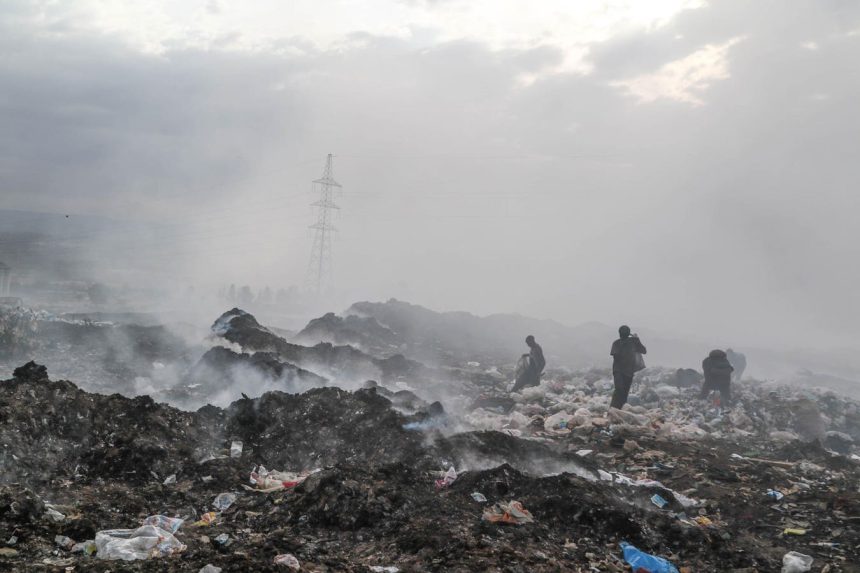The State of Fashion Sustainability: A Complex Landscape
The fashion industry’s sustainability journey in 2024 presents a mixed bag of advancements and persistent challenges. While the looming EU regulations on supply chain due diligence, traceability, and forced labor offer a positive nudge towards responsible practices, a significant portion of the global fashion industry continues to lag behind in addressing critical environmental and social issues. Areas of concern include measuring and mitigating nature-related impacts, achieving absolute reductions in Scope 3 greenhouse gas emissions, and phasing out petroleum-derived fabrics. A concerning trend reveals that sustainability is no longer a top priority for many fashion executives, overshadowed by economic concerns and the pursuit of new technologies like AI. This shift in focus comes at a time when global sustainability agreements have yielded disappointing outcomes, hindering the potential for policy-driven change within the industry.
The Urgency of Action: Confronting Consumption and Climate Risks
Despite the pressing realities of climate change and its potential impact on business operations, the fashion industry’s response remains insufficient. Projections indicate a substantial increase in apparel consumption in the coming years, further exacerbating the industry’s environmental footprint. This trajectory underscores the urgent need for systemic change in the fashion industry’s growth model, moving away from a focus on relentless consumption towards a more regenerative approach. The industry’s current trajectory puts it at significant risk, as climate change-induced disruptions to supply chains and productivity become increasingly frequent and severe. Ignoring these risks poses a substantial threat to the long-term viability of the fashion industry and the broader textile and apparel ecosystem.
Reimagining Growth: Shifting Mindsets and Practices
Experts advocate for a fundamental shift in the fashion industry’s approach to growth, moving away from the traditional emphasis on volume and towards a more holistic and sustainable model. This requires challenging the prevailing narrative that equates success with increased production and consumption, and instead embracing alternative definitions of growth that prioritize social and environmental well-being. Transparency in production volumes is crucial for fostering accountability and driving meaningful change. Mandatory disclosure of production data is essential to provide a clear picture of the industry’s environmental impact and to empower stakeholders to make informed decisions. Furthermore, overcoming the stigma associated with terms like "degrowth" and embracing alternative economic frameworks is essential for fostering a more sustainable and equitable future for the fashion industry.
Supply Chain Transformation: Prioritizing Fairness and Collaboration
As the fashion industry grapples with decarbonization and clean power procurement, it must also prioritize a just transition that protects the rights and livelihoods of workers throughout the supply chain. Suppliers are facing increasing pressure due to evolving regulations and economic uncertainties, highlighting the need for greater collaboration and support from brands. A more relational approach to supply chain management is crucial, moving away from transactional interactions and towards building long-term partnerships based on respect and mutual benefit. This includes ensuring fair labor practices, providing adequate financial support, and fostering open communication with suppliers to address their concerns and empower them to participate in the transition to a more sustainable fashion industry.
Investor Expectations: Driving Change through Responsible Investment
Investors are increasingly scrutinizing the fashion industry’s social and environmental performance, demanding greater transparency and accountability. Recent divestments from major fashion companies by impact investors signal a growing awareness of the risks associated with unsustainable practices. Investors are calling for concrete action on human rights, environmental protection, and circularity. A focus on meaningful targets, measurable progress, and authentic initiatives is essential to regain investor confidence and secure funding for innovative solutions in textile recycling and material innovation. The industry must demonstrate a genuine commitment to sustainability, moving beyond superficial efforts and embracing systemic change to address its environmental and social impacts.
Leading the Way: CSOs Navigating Complexity
Chief Sustainability Officers (CSOs) play a crucial role in driving change within the fashion industry, navigating complex regulatory landscapes, supply chain uncertainties, and macroeconomic challenges. Successful CSOs prioritize transparency and accountability, publicly communicating both achievements and shortcomings in their sustainability efforts. They advocate for climate-led decision making and demonstrate the value of sustainable practices to their organizations. Focus areas for CSOs in 2025 include textile recycling, material innovation, and policy advocacy. These efforts require collaboration across the industry and a commitment to investing in research and development to scale sustainable solutions. By matching rhetoric with action and prioritizing long-term sustainability over short-term gains, CSOs can lead the fashion industry towards a more responsible and regenerative future.



